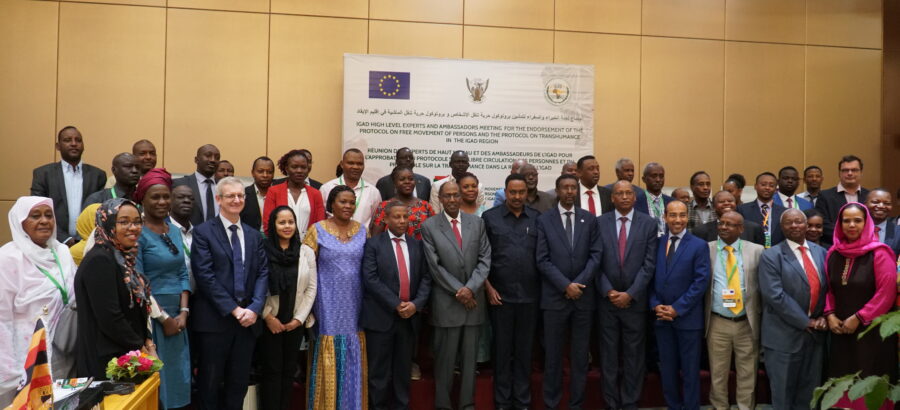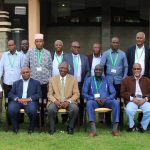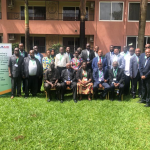Background:
Climate variability has been affecting vast areas of the region irrespective of international borders and restriction on cross-border transhumance as a regional risk management mechanism, conflicts and defective tenure policies have however posed threats to sustainability of pastoral livelihood system. In order to address these challenges and secure the pastoral ecosystem in the region, IGAD has been conducting national and regional consultations and negotiation meetings to finalize a regional protocol on transhumance for adoption by Member States.
The need for the transhumance protocol in the IGAD region is premised on the understanding that migration in search of pastures and water is paramount to the very survival of transhumant pastoralist communities. The process of developing IGAD protocol on transhumance has encompassed a series of technical consultations with Member States, harmonization of a technically all-inclusive draft protocol through regional technical meetings, and national and regional negotiation meetings with Member States’ legal experts and policy makers.
It is against this background that IGAD held a one day Committee of Ambassadors and High-Level Experts meeting in Khartoum, Sudan on 27th February 2020. The purpose of the meeting was to finalize the four Articles which members had reservations about, during the Regional and Ambassadorial Meeting held in Entebbe on 23rd-25th September 2019, and to endorse the Protocol on Transhumance in the IGAD Region. Ambassadors and their designated representatives, as well as High-Level Experts, from Djibouti, Ethiopia, Kenya, Somalia, South Sudan, the Sudan, and Uganda attended the session. Present also were the Chief of Mission for the IOM Special Liaison Mission to IGAD and the Ambassador of the European Union Delegation to IGAD.
Summary of Proceedings:
In his opening remarks, Dr. Solomon Munyua, ICPALD Director, welcomed the participants to the meeting and informed them that the purpose of the meeting was to review the four outstanding articles of the Protocol that were deferred for further consultations and discussions after the Entebbe Meeting held in September 2019. He informed members that IGAD Secretariat had considered comments and submissions by the delegates on the four Articles and made some amendments for presentation to the members.
Dr. Munyua reiterated that transhumance is a net contributor to the economies of the IGAD Region and not just a taker, with evidence showing that transhumance contributes 6-10% of the GDP of the said economies. He noted that IGAD Member States and the Secretariat have come up with various strategies to deal with the challenges posed by transhumance including MOUs between countries, strategies on cross border animal health, mapping of transhumance routes, and integrated early warning system on climate change.
Thereafter, H.E. Amb. Hamza Elamin Ahmed, Ambassador of Sudan to Djibouti officially opened the meeting. A narration of the journey to IGAD Protocol on Transhumance, through a video documentary, laid out the genesis of the Protocol, the consultations and deliberations up to the present status.
Meeting Outcomes:
- The contentious four articles (article 4,5,12 and 16) were adopted alongside the previous 28 articles.
- The Protocol was declared endorsed by the Committee of Ambassadors, under the Chairmanship of H.E. Amb. Hamza Elamin Ahmed, Ambassador of Sudan to Djibouti.
- The endorsement meant an automatic endorsement of the IGAD transhumance certificate in line with article 20 of the protocol.
Conclusion:
The endorsement of the Protocol has opened a new chapter to embark on the implementation process, especially the popularization phase, pending its signing by the IGAD Council of Ministers. Meanwhile, ICPALD will organize an advocacy meeting for the sector Ministers to support the endorsed protocol.
Acknowledgement: ICPALD expresses appreciation to EUTF for financing this activity.






